
Meet the experts
Learn more about the global experts of LYMPHOMA & MYELOMA CONNECT, an initiative of COR2ED.
Lymphoma CONNECT
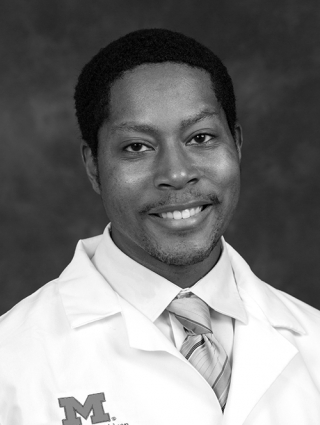
Assoc. Prof. Tycel Phillips
Haematologist-Oncologist
University of Michigan Rogel Cancer Center
United States (US)

Assoc. Prof. Tycel Phillips
Haematologist-Oncologist
University of Michigan Rogel Cancer Center
United States (US)
Dr. Tycel Phillips, is a lymphoma specialist with a research and clinical focus on non-hodgkin lymphoma. Dr. Phillips completed his hematology-oncology fellowship at University Hospitals/Case Western University. While at Case Western, Dr. Phillips began to focus on the development of clinical trials utilizing novel agents in lymphoma. He has continued his focus on clinical research upon his appointment at the University of Michigan and in addition has been the site primary investigator on numerous clinical trials in multiple subtypes of lymphoma. Dr. Phillips’s research interests include evaluation of resistance mechanisms in mantle cell lymphoma (MCL), non-cytotoxic chemotherapeutic treatment in frontline MCL, and other novel combinations in relapsed/refractory lymphoma. Dr. Phillips is involved in professional societies including the American Society of Clinical Oncology (ASCO) and American Society of Hematology (ASH).
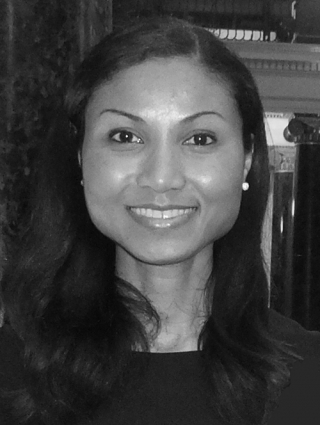
Dr. Jessica Okosun
Clinician Scientist/Haematologist
Barts Cancer Institute and St Bartholomew's Hospital
United Kingdom (UK)

Dr. Jessica Okosun
Clinician Scientist/Haematologist
Barts Cancer Institute and St Bartholomew's Hospital
United Kingdom (UK)
Dr Jessica Okosun is a Cancer Research UK Clinician Scientist at the Barts Cancer Institute and an Honorary Consultant Haematologist at St Bartholomew’s Hospital, London UK, specialising in lymphomas. She received her BA in Natural Sciences (Pathology) and qualified in medicine from the University of Cambridge in 2004. She was a recipient of the Kay Kendall Leukaemia Fund’s Junior Research Fellowship, completing her PhD in 2015 from Queen Mary, University of London. Her research interests are focussed on understanding the origin, heterogeneity and evolution of lymphomas, particularly follicular lymphomas, in a bid to define novel biomarkers and therapeutic strategies. Her research has led to several awards including the EHA/ASH Translational Research Training in Haematology award and the UK’s Royal College of Pathologist Specialty Research Medal in Haematology. She is an active member of the UK’s National Cancer Research Institute (NCRI) High Grade Lymphoma Subgroup, Hodgkin lymphoma subgroup and the Primary CNS Lymphoma (PCNSL) Working Party. She chairs the Barts Cancer Centre’s Patient and Public Research Advisory Group.
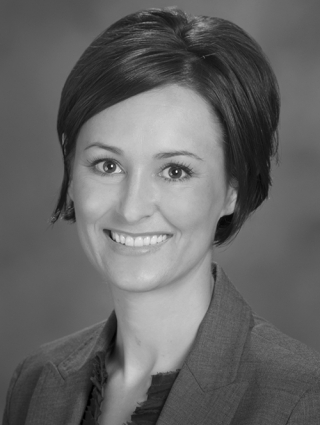
Assoc. Prof. Loretta Nastoupil
Haematologist
MD Anderson Cancer Center
United States (US)

Assoc. Prof. Loretta Nastoupil
Haematologist
MD Anderson Cancer Center
United States (US)
Loretta Nastoupil, MD, completed her undergraduate degree at Texas Tech Health Sciences Center, graduating summa cum laude in 2003. She obtained her medical degree from the University of Texas Southwestern Medical School at Dallas in 2007. Dr. Nastoupil completed her internship and internal medicine residency at Washington University, Barnes-Jewish Hospital in St. Louis, Missouri. Following residency, she completed a hematology-medical oncology fellowship at Emory University, serving as chief fellow her last year. Dr. Nastoupil joined the faculty at MD Anderson Cancer Center in 2013 as an assistant professor in the Department of Lymphoma/Myeloma. Dr. Nastoupil is a clinical researcher with a focus on lymphoma epidemiology and outcomes. The goal of her research is to identify risk factors associated with lymphoma and eliminate disparities in outcomes to improve survival for all patients with lymphoma. She is actively involved in early phase drug development as well as immune therapy studies in indolent lymphoma. She is also actively exploring predictive biomarkers with modern therapy in lymphoma.
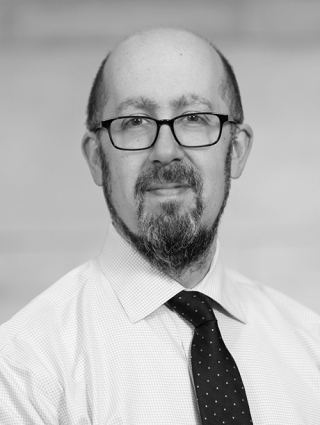
Dr. Matthew J. Matasar
Medical Oncologist
Memorial Sloan Kettering Cancer Center
United States (US)

Dr. Matthew J. Matasar
Medical Oncologist
Memorial Sloan Kettering Cancer Center
United States (US)
Dr. Matthew Matasar is a board-certified medical oncologist/hematologist, who received his undergraduate and medical degrees from Harvard University. His internal medicine training was completed at Columbia Presbyterian, where he earned a Master’s in biostatistics, while serving as Chief Resident. His fellowship training was in medical oncology at Memorial Sloan Kettering Cancer Center, where he subsequently joined faculty on the Lymphoma and Adult BMT services. Dr. Matasar is also the Director of the Lymphoma Survivorship Clinic, where he focuses on the management of long-term survivors of Hodgkin and non-Hodgkin lymphoma. As the Section Head for Aggressive B-cell Lymphomas, his research is focused on improving outcomes in relapsed but curable patients using novel therapies. He is the Medical Director at MSK Bergen, directing a team of expert oncologists in the delivery of cutting-edge care across cancer service lines to patients at the free-standing outpatient center in Montvale, New Jersey.
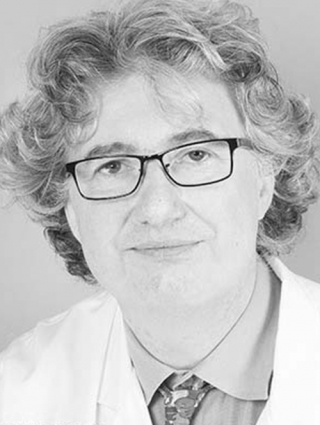
Dr. Massimo Magagnoli
Haematologist
Humanitas Cancer Center
Italy

Dr. Massimo Magagnoli
Haematologist
Humanitas Cancer Center
Italy
Dr. Massimo Magagnoli is a haematologist and Associate Director at the Department of Hematology and Clinical Oncology at the Humanitas Cancer Center in Milan. He graduated in medicine from the University of Bologna, where he attended the “Seragnoli” hematology institute, first as a medical student and later as a doctor in specialization. At this institute he specialized in hematology with laude. Since 1999 he works at Humanitas Cancer Center. Dott Magagnoli specializes in the management of non-Hodgkin’s lymphomas and chronic lymphatic leukemia. Particular interest is in the study and research of new drugs for lymphoma and chronic lymphatic leukemia. From 1999, he followed and participated in more than 40 Phase I, II and III clinical trials in hematologic malignancies. Last GCP training (ICH E6 (R2) GCP) on November 2017. Dr. Magagnoli other interests in the management of older patients with haematological tumors, and tools to improve the care of this patient population. Massimo is co-author of about 80 peer-reviewed papers
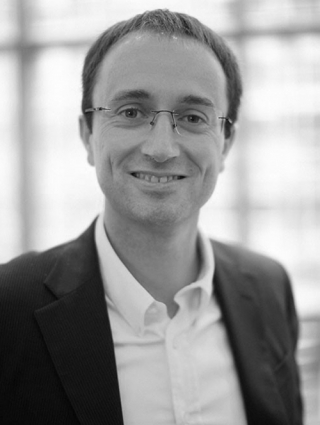
Prof. Stefano Luminari
Haematologist
University of Modena and Reggio Emilia
Italy

Prof. Stefano Luminari
Haematologist
University of Modena and Reggio Emilia
Italy
Prof Stefano Luminari is Hematologist, Associate professor of Medical Oncology at the University of Modena and Reggio Emilia, in Italy. He is head of the clinical research program for oncohematologic disorders at the Reggio Emilia research Hospital. His activity has been mainly focused on several aspects of clinical research in malignant lymphomas. In particular he is an expert in biomarkers and prognostic studies, in phase II and III clinical trials, and in population based studies. He is an active member of the Fondazione Italiana Linfomi with a leading role in the Indolent lymphoma committee and with a role as PI or co-investigator in several clinical trials mainly focused on follicular lymphomas, Hodgkin lymphomas, aggressive lymphomas (mainly elderly patients) and in the use of PET in lymphomas. He has authored more than 130 peer reviewed manuscripts. Of note, his contribution in the study of FDG-PET in Follicular Lymphoma in the staging (Luminari et al Ann Oncol 2013) and restaging assessment after induction therapy (Luminari et al. Ann Oncol 2014, Trotman J et al. Lancet Hematol 2014) and in the integration of PET with minimal residual disease in the phase of response assessment (Luminari Haematologia 2015). He is active in communicating research data and opinions through social networks (twitter account @stefanoluminari)
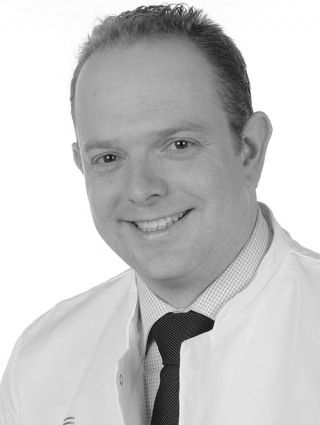
Prof. Georg Lenz
Haematologist-Oncologist
University Hospital Münster
Germany

Prof. Georg Lenz
Haematologist-Oncologist
University Hospital Münster
Germany
Professor Georg Lenz is Director of the Department of Hematology, Oncology and Pneumology at the University Hospital in Muenster, Germany. He started his career as a medical doctor in Munich in 2002 and completed his post-doctoral fellowship at the National Cancer Institute in Bethesda, USA. In 2009, he moved to Berlin and continued his scientific career as Professor of “Molecular pathogenesis of malignant lymphomas” at the Charité – Universitätsmedizin Berlin where he also worked as a Senior Physician at the Medical Clinic of Hematology, Oncology and Tumor Immunology until 2014. His research focuses on the molecular characterization of malignant lymphomas. Clinically he focuses on trials investigating the efficacy of novel compounds in the therapy of patients with hematological malignancies. He has published numerous articles in peer-reviewed journals such as the New England Journal of Medicine, Science, Nature, Blood, and the Journal of Clinical Oncology, and he has authored several books and book chapters.
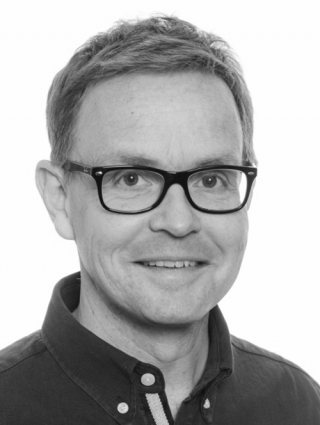
Prof. Mats Jerkeman
Medical Oncologist
Lund University
Sweden

Prof. Mats Jerkeman
Medical Oncologist
Lund University
Sweden
Dr. Mats Jerkeman, MD, completed his training in Clinical Oncology at Lund University, Sweden, where he is currently Professor in Clinical Oncology, and Head of Division of Oncology. His research focuses on the development of clinical trials in lymphoma, and in clinical epidemiology. He is Chairman of the Nordic Lymphoma Group, and Editor of the ESMO Guidelines of Lymphoma.
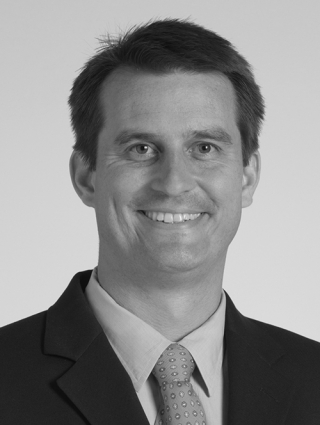
Dr. Brian Hill
Haematologist-Oncologist
Cleveland Clinic Taussig Cancer Institute
United States (US)

Dr. Brian Hill
Haematologist-Oncologist
Cleveland Clinic Taussig Cancer Institute
United States (US)
Dr. Hill is the Director of the Lymphoid Malignancies Program and a Staff Physician in the Cleveland Clinic Taussig Cancer Institute. He received his undergraduate degree from Dartmouth College and earned his Ph.D. in genetics through work done at Cold Spring Harbor Laboratory. He received his medical degree from the University of Chicago Pritzker School of Medicine where he also completed his residency in Internal Medicine. He completed his hematology/oncology fellowship at the Cleveland Clinic. His clinical and research focus is in chronic lymphocytic leukemia (CLL) and lymphoma. He is the principal investigator of multiple on-going clinical trials of new cancer treatments including novel cellular therapies
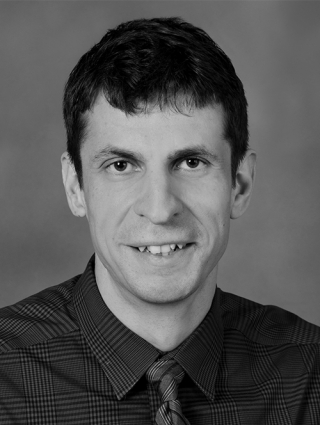
Prof. Alexey V Danilov
Haematologist
City of Hope National Medical Center
United States (US)

Prof. Alexey V Danilov
Haematologist
City of Hope National Medical Center
United States (US)
Alexey V. Danilov, MD, PhD, is a Professor of Medicine at the City of Hope National Medical Center, in Los Angeles, CA. He earned his medical degree and PhD at Yaroslavl State Medical Academy in Russia and completed a fellowship in hematology/oncology at Tufts Medical Center, in Boston, Massachusetts. Dr. Danilov runs an independently funded clinical/translational program in chronic lymphocytic leukemia (CLL) and non-Hodgkin lymphoma (NHL) that bridges the understanding of B-cell biology with early clinical evaluation of novel therapeutics. He spearheads a translational and early-phase therapeutics effort in B-cell malignancies at the Knight Cancer Institute. In the laboratory, he focuses on targeting stromal-mediated pro-survival signaling in lymphoid malignancies. He has characterized promising therapeutic agents with regard to their mechanism of action and resistance, ushering them into early-phase clinical trials in CLL and NHL. He seeks to translate his findings to clinical care by developing protocols that advance current treatment paradigms. His work has received support from the Leukemia & Lymphoma Society, Lymphoma Research Foundation, the National Cancer Institute, and the Southwest Oncology Group, among other funding organizations. He has been published in numerous peer-reviewed journals including Clinical Cancer Research, Cancer Research, Haematologica, Molecular Cancer Therapeutics, Journal of Immunology and others. Among numerous speaking engagements, Dr. Danilov has chaired sessions at the American Society of Hematology Annual Meetings, and has given visiting professor lectures in London and New York. He is a member of the American Society of Hematology and the European Hematology Association. Dr. Danilov is a Leukemia & Lymphoma Society Scholar in Clinical Research and a Lymphoma Research Foundation Clinical Investigator.
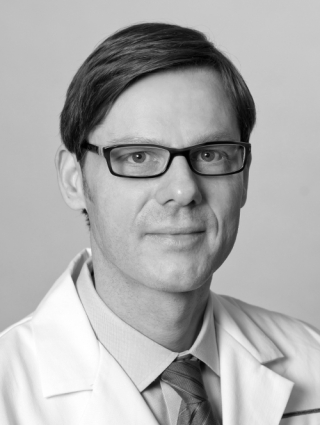
Assoc. Prof. Stefan K Barta
Haematologist-Oncologist
University of Pennsylvania
United States (US)

Assoc. Prof. Stefan K Barta
Haematologist-Oncologist
University of Pennsylvania
United States (US)
Stefan K. Barta, MD, MRCP(UK) underwent medical training at the Johann Wolfgang Goethe University Frankfort, Germany. He completed his internal medicine training at the St. Bartholomew’s and The Royal London Hospital, UK and his hematology-oncology fellowship at the Montefiore Medical Center/Albert-Einstein College of Medicine, Bronx, New York. Previously, Dr. Barta led the T-cell lymphoma program at the Fox Chase Cancer Center. He is currently an Associate Professor of Medicine at the University of Pennsylvania, and is in charge of the T Cell Lymphoma Program. His research interests are focused on novel therapies in T-cell and other aggressive lymphomas. He was awarded with an American Society of Clinical Oncology (ASCO) Young Investigator Award in 2010. Since then, he has led and/or developed multiple investigational clinical trials for lymphoma either as study chair, principal investigator or site principal investigator. He serves on the lymphoma committees for the Eastern Cooperative Oncology Group (ECOG-ACRIN) and AIDS Malignancy Consortium (AMC) and is a member of the AMC steering committee. He is reviewer for several oncological journals and is on the editorial board for “Clinical Lymphoma, Myeloma & Leukemia”.
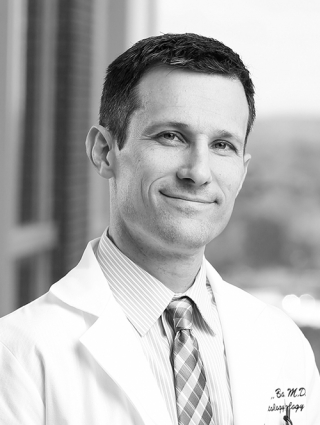
Prof. Paul M Barr
Haematologist/Oncologist
University of Rochester Medical Center
United States (US)

Prof. Paul M Barr
Haematologist/Oncologist
University of Rochester Medical Center
United States (US)
Paul M. Barr MD is a Professor of Medicine at the University of Rochester Medical Center in Rochester, New York. He received his MD from Northeastern Ohio Medical University. His internal medicine and hematology / oncology training was completed at Case Western Reserve University where he also served as Chief Medical Resident. Joining the University of Rochester lymphoma program in 2010, his primary research focus is on novel drug development for non-Hodgkin lymphoma and chronic lymphocytic leukemia. Current efforts revolve around the development of novel combinations incorporating inhibitors targeting the B cell receptor signaling pathway, supported by the Lymphoma Research Foundation and Hope Foundation. Beyond his individual research interests, he is a strong advocate for oncology clinical research. He serves as the Medical Director of the Clinical Trials Office for the Wilmot Cancer Center overseeing all industry sponsored, cooperative group and investigator initiated studies.
Myeloma CONNECT
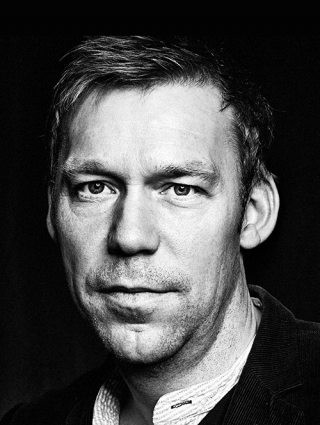
Dr. Fredrik Schjesvold
Haematologist
Oslo Myeloma Center, Oslo University Hospital
Norway

Dr. Fredrik Schjesvold
Haematologist
Oslo Myeloma Center, Oslo University Hospital
Norway
Fredrik Schjesvold is Head of Oslo Myeloma Center, in Oslo, Norway. He is head of the Norwegian myeloma association; president elect of the Nordic Myeloma Study Group and a member of the European Myeloma Network young board. He is national investigator of 36 clinical trials in multiple myeloma, and principal investigator for 4 academic trials. He is a co-author of ESMO and IMWG guidelines, as well as lead author of the Norwegian myeloma guidelines. He is peer reviewer of several international journals, and co-editor of the journal Hemato. He is an international expert on myeloma and has given talks in Europe, America and Asia.
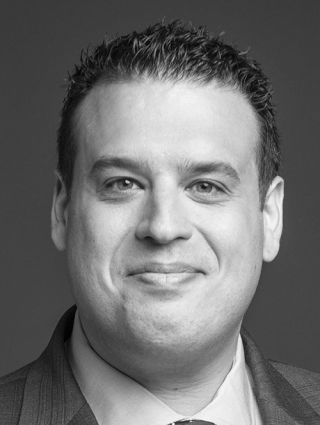
Assoc. Prof. Joshua Richter
Haematologist/Oncologist
Icahn School of Medicine at Mount Sinai
United States (US)

Assoc. Prof. Joshua Richter
Haematologist/Oncologist
Icahn School of Medicine at Mount Sinai
United States (US)
Joshua Richter, M.D., is an Associate Professor in the Myeloma Division at the Tisch Cancer Institute at the Icahn School of Medicine at Mount Sinai and the Director of Myeloma at the Blavatnik Family Chelsea Medical Center at Mount Sinai. He completed undergraduate work at Johns Hopkins University and subsequently went on to medical school at New York Medical College. He completed residency at St. Vincent’s Hospital – New York Medical College. Dr. Richter completed his hematology/oncology fellowship at the Yale Cancer Center. After completing fellowship he worked in the myeloma division at the John Theurer Cancer Center at Hackensack University Medical. In 2018 he joined the Myeloma Division at Mount Sinai Hospital. Dr. Richter has been published in numerous oncology journals including NEJM, Blood, and the Journal of Clinical Oncology. He has an interest in immunotherapy, multi-functional antibodies and precision medicine.
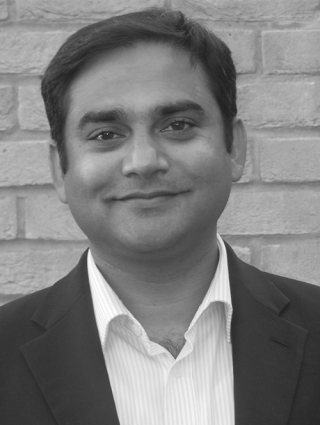
Assoc. Prof. Karthik Ramasamy
Haemato-Oncologist
Oxford University Hospitals NHS Trust
United Kingdom (UK)

Assoc. Prof. Karthik Ramasamy
Haemato-Oncologist
Oxford University Hospitals NHS Trust
United Kingdom (UK)
Karthik Ramasamy is a Consultant Haematologist at Oxford University Hospitals NHS Trust and Associate Professor of Haematology, Radcliffe Department of Medicine, Oxford UK. Dr Ramasamy is the Director of the Oxford Myeloma Translational Research Centre, and a Lead Clinician for myeloma and other plasma cell dyscrasias at the Thames Valley Cancer Alliance Group. He is the Divisional Lead for Cancer research for National Institute for Health Research, Clinical Research Network Thames Valley and South Midlands, UK. He is an executive member of the UK Myeloma Forum and is an active member of UK Myeloma Research Alliance. Karthik serves on the Myeloma UK Board, a patient charity exclusively dealing with myeloma advocacy and research.
Dr Ramasamy completed his haematology training in London. Following this, he completed three years as a clinical research fellow working on bone marrow microenvironment in myeloma at King’s College London.
Dr Ramasamy is a Chief Investigator of myeloma studies and his translational research interests are early diagnosis of myeloma, myeloma renal, bone disease and myeloma drug resistance mechanisms. Karthik has published over 50 papers and authored textbooks/ chapters on myeloma
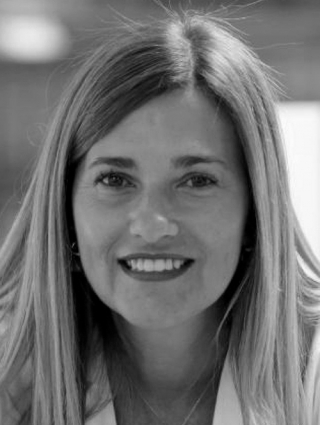
Assoc. Prof. María Victoria Mateos
Haematologist
University Hospital of Salmanca
Spain

Assoc. Prof. María Victoria Mateos
Haematologist
University Hospital of Salmanca
Spain
Dr. María-Victoria Mateos, MD, PhD, is Consultant Physician in the Haematology Department and Associate Professor of Medicine at the University of Salamanca, Spain. She is the director of the Myeloma Program and coordinates the Clinical Trials Unit in Salamanca’s University Hospital Haematology Department.
She serves as coordinator of GEM (Spanish Myeloma Group), with direct involvement in the design and development of clinical trials. She has coordinated many clinical trials especially in the smouldering myeloma setting and these trials have profoundly influenced current options for the management of these patient populations.
She has published over 250 original papers in international journals and her articles had received 29.452 citations (19268 since 2015) with a H index of 79 and 60 since 2015.
She is also a member of the IMWG (International MM Working Group), IMS (International MM Society), EHA and ASH. Among her invited presentations, she has contributed to the educational sessions of EHA 2012, ASH 2013, ASCO 2015, EHA 2016, ASCO and ASH 2017.
She has served on the ASH Scientific Committee on plasma cell diseases between 2015-2019 and on the EHA’s Scientific Program Committee and Advisory Board since 2013 until 2020 being chair of the Scientific Program Committee in 2019, and.
She has been Councillor on the EHA Board since 2015 for a four-year mandate, member of the Steering Committee for the Society of Hematologic Oncology (SOHO), member of the IMS board and member of the European School of Haematology (ESH) Scientific committee. She received the Briand Durie Award in 2019 recognizing excellence in myeloma research.
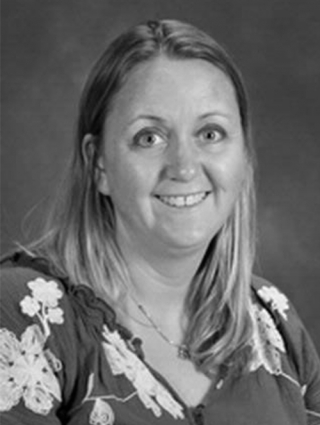
Assoc. Prof. Brea Lipe
Oncologist
University of Rochester Medical Center
United States (US)

Assoc. Prof. Brea Lipe
Oncologist
University of Rochester Medical Center
United States (US)
I always knew I wanted to be a physician, but I first became interested in oncology during my undergraduate studies at the University of Colorado. I worked the night shift as a nursing aide on an oncology floor and felt inspired by the strength and vulnerability of patients struggling with their diagnosis and side effects. My interest in oncology continued during medical school at Albany Medical College and into residency and fellowship at Dartmouth. During fellowship, I was challenged by the complexity and difficulty in understanding multiple myeloma as a provider. Trying to understand and convey these complexities to patients motivated me to know more and work harder; my dedication to the disease became a career driver.
Currently, I am the clinical director of the multiple myeloma program at the University of Rochester. In the laboratory and in the clinic, I am focused on improving the care of patients with multiple myeloma and other plasma cell dyscrasias. Treatment options and our understanding of multiple myeloma have changed dramatically in the last 10 years. The rapid pace of change, intrinsic disease complexity, and the ability to impact patient lives still leaves me amazed and humbled every day.
I believe that it’s important to know my patients as individuals to understand the situational circumstance and personality that drives their treatment goals. Multiple myeloma is a lifelong journey and a strong partnership with my patients is essential to achieving the best quality of care. I have a strong interest in clinical research and like to offer my patients a variety of clinical trial options and treatments based on the most recent data. I have a dedicated support team, so that we can offer patients a team with real myeloma-specific expertise.
In my research laboratory, I am particularly interested in understanding the mechanisms that allow multiple myeloma to develop. By studying disease progression, my ultimate goal is to develop therapies to prevent multiple myeloma.
Outside of work, I love to travel, and grow things — flowers, vegetables, orchids, animals, children. I have gotten some of my best gardening tips from my patients.
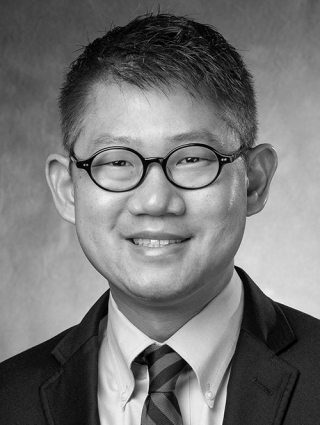
Asst. Prof. Hans Lee
Haematologist-Oncologist
MD Anderson Cancer Center
United States (US)

Asst. Prof. Hans Lee
Haematologist-Oncologist
MD Anderson Cancer Center
United States (US)
Dr. Hans Lee is currently an Assistant Professor and Director of Multiple Myeloma Clinical Research in the Department of Lymphoma/Myeloma at MD Anderson Cancer Center, where his clinical and research efforts are focused on advancing the care and treatment of patients with multiple myeloma. Specifically, his primary research goals are directed towards novel approaches to treating multiple myeloma through early phase investigator-initiated and industry-sponsored clinical trials.
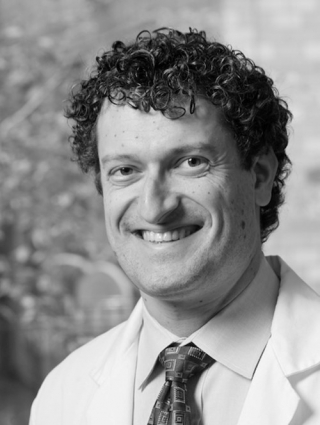
Dr. Alexander M Lesokhin
Hematologic Oncologist
Memorial Sloan Kettering Cancer Center
United States (US)

Dr. Alexander M Lesokhin
Hematologic Oncologist
Memorial Sloan Kettering Cancer Center
United States (US)
Alexander M. Lesokhin, MD, is the Interim Service Chief for the Myeloma Service and a member of the Cellular Therapeutics Center. He is also a member of the Ludwig Collaborative laboratory at Memorial Sloan Kettering Cancer Center in New York, New York. He received his MD from the Albert Einstein College of Medicine with distinction in research. Dr. Lesokhin’s research focuses on the ability of cancers to evade the immune system and on developing novel treatments to reverse this process. He leads a portfolio of clinical trials testing the clinical and immune effects of antibodies targeting immune agonists, immune checkpoints, bi-specific engagers and adoptive cellular therapies focused in hematologic malignancies. He has additionally developed and validated assays for measuring myeloid-derived suppressor cells (MDSC) as a potential biomarker for efficacy of immune based therapies. His work has resulted in 70 peer-reviewed publications. Dr. Lesokhin has received career development awards from the American Cancer Society and the Melanoma Research Alliance and receives additional funding from Cycle for Survival, the Sawiris Foundation, and the Parker Institute for Cancer Immunotherapy.
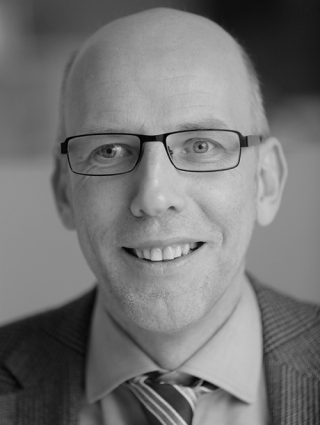
Prof. Michel Delforge
Haematologist
University of Leuven
Belgium

Prof. Michel Delforge
Haematologist
University of Leuven
Belgium
Michel Delforge is professor of Medicine in the Department of Hematology at the University of Leuven in Belgium. He trained in Leuven and at the University of Minnesota, USA, and obtained a doctoral degree in biomedical sciences. Dr Delforge is currently chairman of the Cancer Institute Leuven and clinical head of the Department of Hematology where he directs the plasma cell dyscrasia unit. He is also a senior clinical investigator, chairman of the Belgian Myeloma Working Party, and active member of the Intergroupe Francophone du Myélome, HOVON (Hemato-Oncology Foundation for Adults in the Netherlands), and the International Myeloma Working Group. He holds the Luc Fraiture Chair in Hematology at the University of Leuven, and has authored or coauthored more than 100 manuscripts and several book chapters in the field of hematology. He is reviewer for several international journals in the field of hematology.
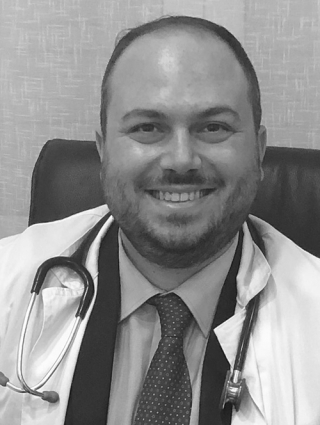
Dr. Claudio Cerchione
Haematologist
Istituto Scientifico Romagnolo per lo Studio e la Cura dei Tumori
Italy

Dr. Claudio Cerchione
Haematologist
Istituto Scientifico Romagnolo per lo Studio e la Cura dei Tumori
Italy
Dr Claudio Cerchione, MD, PhD, is Hematologist and Researcher at Hematology Unit – Istituto Scientifico Romagnolo per lo Studio e la Cura dei Tumori (IRST) IRCCS. He has spent international research experiences in Friedrich-Wilhelms Universität, Bonn, Germany, in Universitade de Coimbra, Portugal, collaborating in their clinical and research projects, and in MD Anderson Cancer Center, Houston, USA, where he was nominated International Ambassdor of SOHO (Society of Hematologic Oncology). He is member of the editorial boards of many scientific journals, and member of several international societies, including the Society of Hematologic Oncology (SOHO), American Society of Hematology (ASH), European Hematology Association (EHA) and Italian Society of Hematology (SIE). He is author/co-author of many articles in peer-reviewed international journals and more than 200 abstracts, presented at national and international congresses, and is member of Editorial Board or reviewer for several highly cited international journals. In 2018/2019 he was nominated by EHA as one of the winners of Clinical Research Training in Hematology. He is involved in many educational activities at national and international Hematology conferences, either as invited speaker or chairman.
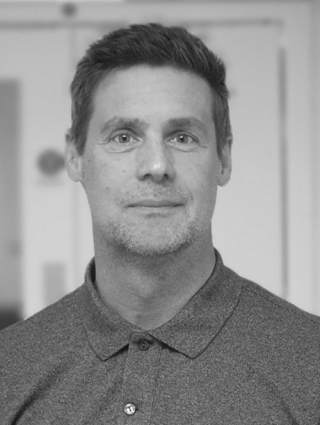
Dr. Holger W Auner
Haemato-oncologist
Imperial College London
United Kingdom (UK)

Dr. Holger W Auner
Haemato-oncologist
Imperial College London
United Kingdom (UK)
Dr Holger Auner is Clinical Reader in Molecular Haemato-oncology at Imperial College London. He received his MD from Karl-Franzens University Graz, Austria, where he also trained in Internal Medicine/Haematology-Oncology and studied genetic instability in myeloid leukaemias in the laboratory of Professor Heinz Sill. He was awarded a Kay Kendall Leukaemia Fund Junior Research Fellowship to join the group of Professor Niall Dillon at the MRC Clinical Sciences Centre in London and obtained his PhD for work on plasma cell biology from Imperial College London. He was the recipient of a Cancer Research UK (CRUK) Clinician Scientist Fellowship in 2012, enabling him to establishe a research group in the Centre for Haematology at Imperial College London. Currently, he holds a CRUK Advanced Clinician Scientist Fellowship, is Head of Translational Research at Imperial’s Hugh and Josseline Langmuir Centre for Myeloma Research and is an Honorary Consultant in Haematology (Imperial College Healthcare NHS Trust). Dr Auner’s primary research interest is to better understand the molecular mechanisms that coordinate protein degradation pathways with cellular metabolism in multiple myeloma and other cancers. His lab also investigates how proteomic and metabolic homeostasis depend on tissue physical properties and vice versa, using time-resolved omics approaches in a range of cross-disciplinary collaborations with academic and pharmaceutical industry partners. Dr Auner is board member of the UK Myeloma Research Alliance (UKMRA), member of the European Myeloma Network (EMN), and principal/chief investigator of national and international phase 1 to 3 trials.




